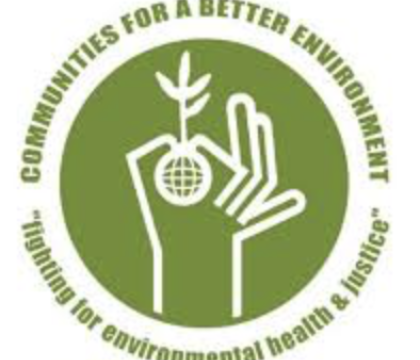Bay Area Climate Justice Fellowship 2022: Research to Support a Just Transition in Richmond
Overview
The world of petroleum refining is coming to an end, and the stakes are high for this transition. There are many recent and ongoing examples of Unjust Transitions for communities with refineries and heavy industry, predominantly low-income Black and Brown communities. For example, in recent years we have seen overnight shutdown of industry with widespread layoffs, companies going bankrupt leaving land toxic and polluted, and explosions from unsafe equipment practices. Meanwhile, refineries across the country are turning to producing biofuels from oils like soybeans as a strategy for extending the lifespan of aging infrastructure, which introduces a host of additional concerns for workers, surrounding community, and the global food system. All of these Unjust Transitions protect corporate profits, while ultimately abandoning both workers and communities that have borne the impacts of these industries for generations.
In Richmond, the Chevron Refinery has polluted the air with its toxic emissions, and politics with its money, for over a century. Communities for a Better Environment and the Richmond Our Power Coalition are fighting for a Just Transition away from this history. This means a transition away from the current, extractive economy in which Chevron plays an outsized role, towards a regenerative economy in which both workers and the community are supported. Doing so will require deep community planning and visioning, and research will play a key role in facilitating this process.
This fellowship will support Communities for a Better Environment and the Richmond Our Power Coalition in conducting research to support their campaign towards a Just Transition in Richmond.
Key partners
Communities for a Better Environment has a long history of organizing in Richmond, campaigning for cleaner air from the Chevron Refinery specifically, and to hold fossil fuel companies accountable more broadly. CBE is a member of the Richmond Our Power Coalition, which is composed of other Richmond base-building organizations working to pave the way for a Just Transition for Richmond.
About the fellowship
The fellow will work with CBE to support its Just Transition research. Projects will be designed based on skillsets of applicants. However, the following are examples of what Just Transition research may focus on:
-
Historical soil and water contamination
-
Current petroleum industry trends
-
Impact on municipal finance from potential tax base loss
-
Paths towards economic diversification
-
Gentrification impacts on surrounding communities from industry transition
The fellow may be asked to contribute to the following:
-
Creating whitepapers, memos, and fact sheets
-
Drafting comment letters and providing testimony to engage with state, regional, and local regulators
-
Designing materials, such as presentations and curriculum, for community engagement
Qualifications:
Just Transition research requires a range of skills and expertise. Advanced undergraduates and graduate students (Masters or PhD-level) in the fields of Chemical Engineering, Earth Systems, Earth System Science, Public Policy, and Urban Studies, are particularly encouraged to apply, but students from other fields will also be considered. All applicants should bring a passion for social and environmental justice, and excellent research and communication skills. While applicants ideally would be located in the East Bay, working remotely is also an option.
Stipend
Undergraduate and coterm Cardinal Quarter Fellows receive a base stipend of $5,500 to support living expenses during the fellowship. Financial aid and supplemental funding may be available to students who qualify (learn more here).
Students in 2-year Masters program will receive a stipend of $7,500 and PhD students will receive up to $5000 for a part-time role.
This is a full-time, 9-week opportunity during Summer 2022, starting no later than July 5, 2022. Advanced undergraduate, co-term, Masters and PhD students from all academic disciplines are encouraged to apply. Priority will be given to students who have completed fewer than two previous Cardinal Quarter opportunities. Graduating students are welcome to apply, but may receive lower priority. PhD students may apply for up to 50% time.
Please review our program policies for complete eligibility requirements.
Additional Fellowship Requirements
This opportunity is associated with Partnerships for Climate Justice in the Bay Area (PCJ in the Bay), an initiative to build equitable climate change solutions by supporting partnerships between Stanford students, faculty and Bay Area community leaders. Fellows are expected to participate in cohort activities with other PCJ in the Bay Fellows.
Additional requirements include:
Spring 2022:
-
Complete an online program orientation.
-
Complete Engaging in Ethical and Effective Service workshop or worksheet.
-
Design a personal learning plan and share the learning plan with site supervisor and academic mentor.
During the Summer 2022 fellowship:
-
Submit a brief preliminary report.
-
Submit a final report, complete a program evaluation, and correspond with fellowship donor(s) as requested by fellowships program staff.
-
Attend one or more PCJ in the Bay Fellows cohort sessions (more information will be shared about these events in spring quarter)
Fall 2022:
-
Participate in outreach activities to share the experience and help publicize the program
